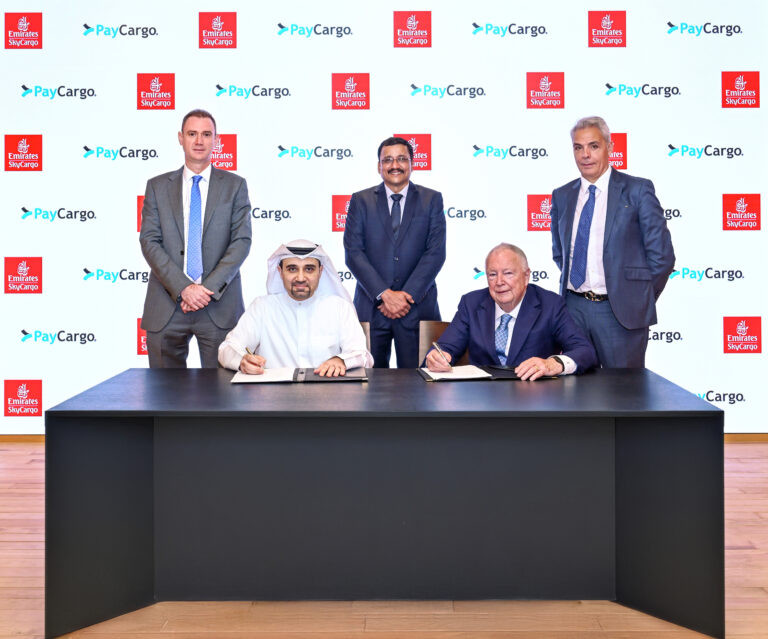The Gulf’s trade infrastructure took a major step forward with the partnership between Emirates SkyCargo and PayCargo, introducing real-time, cloud-based payment systems into the UAE’s airfreight sector. As air cargo faces growing demands for speed, transparency, and compliance, this collaboration highlights the growing strategic role of financial technology in trade.
While modernisation has historically focused on physical infrastructure—runways, terminals, and warehouses—the pandemic exposed the limitations of these alone. Outdated, manual payment systems continue to cause delays, raising demurrage costs and slowing cargo release.
PayCargo’s digital platform, now available to Emirates SkyCargo customers, allows shippers and forwarders to make real-time payments via credit card or direct debit, enabling same-day or next-business-day cargo release. This reduces paperwork, improves cash flow, and speeds up reconciliation.
“This is about solving structural inefficiencies at scale,” said Eduardo Del Riego, CEO of PayCargo. “Our system enhances both the speed and security of cargo transactions.”
For Emirates SkyCargo—servicing over 150 global destinations—this adds resilience and agility to its operations, strengthening its financial backbone alongside automation.
Trade policy alignment
The launch aligns with the UAE’s National Digital Economy Strategy, which identifies logistics as a priority sector. In 2023, logistics contributed AED 220 billion (US$59.9 billion) to GDP and is projected to grow 8 percent annually through 2028. Digital payment platforms support this growth by improving compliance with Know Your Customer (KYC), Anti-Money Laundering (AML), and customs regulations.
At major hubs like Dubai International Airport—which handled over 1.9 million tonnes of cargo in 2024—digitisation also helps meet evolving international standards, including the EU’s ICS2 and ICAO’s CORSIA. “This isn’t just a payment solution,” said Hisham Al Gurg, CEO of Seed Group, PayCargo’s regional advisor. “It’s a model for how digital finance can drive competitiveness.”
Industry stakeholders also stand to benefit. Freight forwarders can bypass manual payment confirmations and avoid demurrage costs. Ground handlers gain faster turnover and better warehouse utilisation. Air carriers can optimise cargo flows, a growing priority for time-sensitive shipments.
Globally, fewer than 25 percent of air cargo payments are processed digitally, according to IATA. The Emirates–PayCargo model could inspire adoption across other GCC states pursuing logistics digitisation under frameworks like Saudi Arabia’s Vision 2030.





